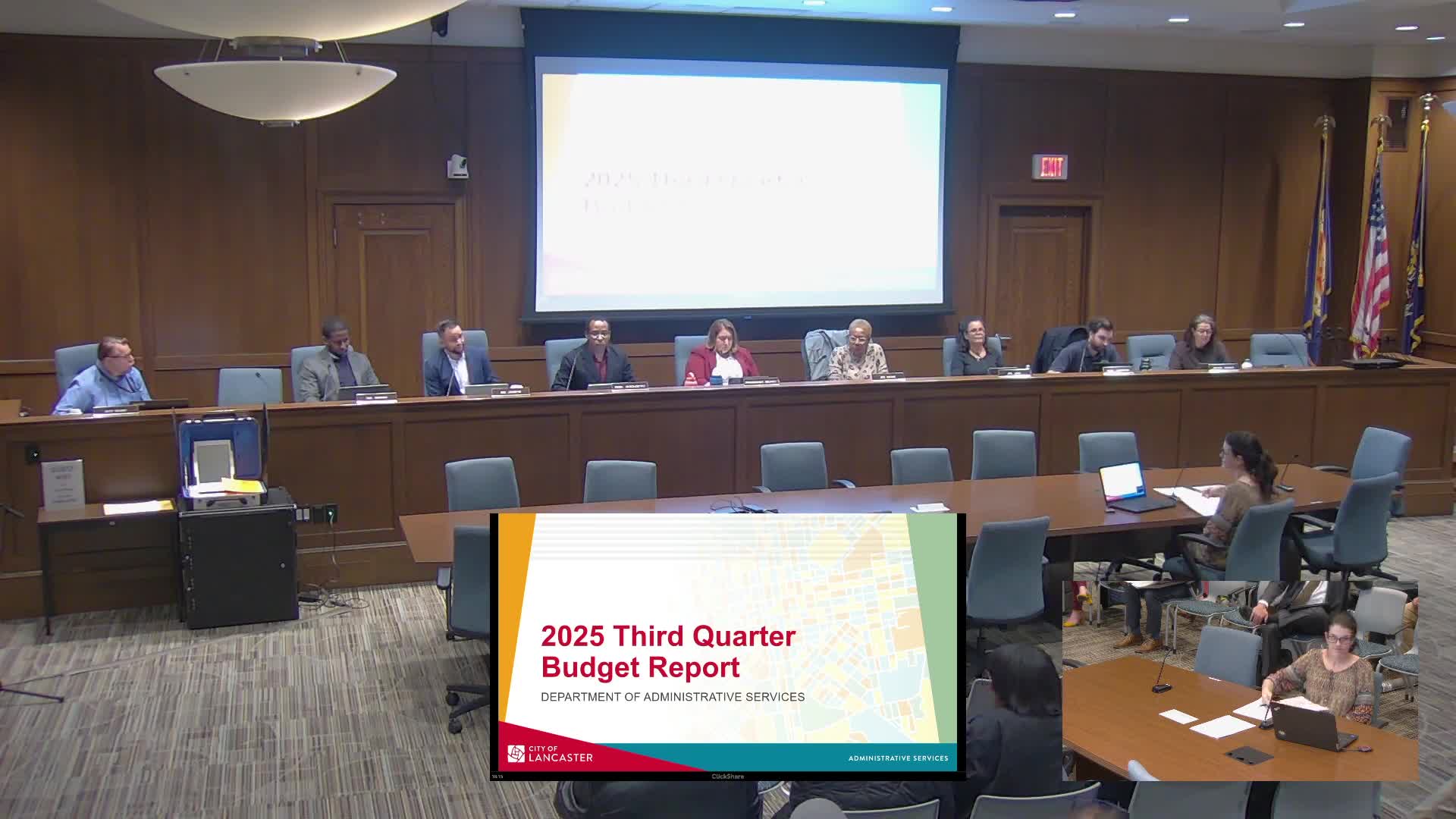Council hears trade-offs of a $12,000 earned-income-tax exemption; staff warns refunds and nonresident collections reduce in‑city benefit
Get AI-powered insights, summaries, and transcripts
Subscribe
Summary
Finance staff told council that a city EIT exemption at the $12,000 state ceiling could reduce city revenue by an estimated $258,000 if more taxpayers file, but nonresident collections and processing fees mean only about 46% of that amount would reach city residents.
The Lancaster City finance committee on Nov. 3 revisited a staff report on a possible earned income tax (EIT) exemption for low-income residents and focused discussion on who would benefit and how much of the forgone revenue would actually reach city residents.
Director of Finance Tina Campbell told the committee the legal ceiling for a municipal earned income tax exemption is $12,000 under Pennsylvania practice and that the city currently has no EIT exemption. She said implementation would require the Lancaster County Tax Collection Bureau to process refunds because the work requires confidential tax information.
Using 2024 actuals and 2025 projections, staff estimated that if only current filers who meet the $12,000 threshold claim the exemption, the city would forgo about $130,000 in revenue in 2025. If the exemption incentivized additional filings — staff modeled a 20% increase — lost revenue could reach about $258,000, Campbell said.
Campbell and the tax collection bureau data indicate that roughly $117,000 of the estimated $258,000 could be captured by other municipalities as nonresident earned-income tax, leaving approximately $141,000 to be refunded directly to eligible residents. Processing fees charged by the county bureau were estimated at about $47,000 (roughly $10 per filing), leaving a total city outlay — reduced revenues plus processing cost — near $304,000 and meaning only about 46¢ on the dollar would reach residents in the modeled scenario.
“We're we're viewing it similar to a grant,” Campbell said of the city’s accounting approach for data-center permitting revenue; later she characterized the $12,000 cap as the operative ceiling they were using for cost estimates. Campbell emphasized the analysis remains preliminary and that staff had not taken a “thorough dive” into all policy options.
Council debate centered on whether administrative costs and nonresident leakage justify pursuing an exemption. Councilor Hirsch said he was reluctant to implement a program “in which we're spending more to administer it than the benefit is actually being received by city residents.” Council President Begay and other councilors suggested alternatives such as channeling the funds estimated for refunds into targeted programs — for example, a city-only water-assistance fund or a critical-repair program for low-income households — which would keep a larger share of funds within Lancaster.
Members of the public asked whether refunds could be automatic; staff said the tax collection bureau described an application/refund process but staff would need to confirm the feasibility of an automated refund.
The committee did not adopt an exemption at the meeting and instead requested further study and options for targeted programs that would direct a higher share of any allocation to in‑city residents.
